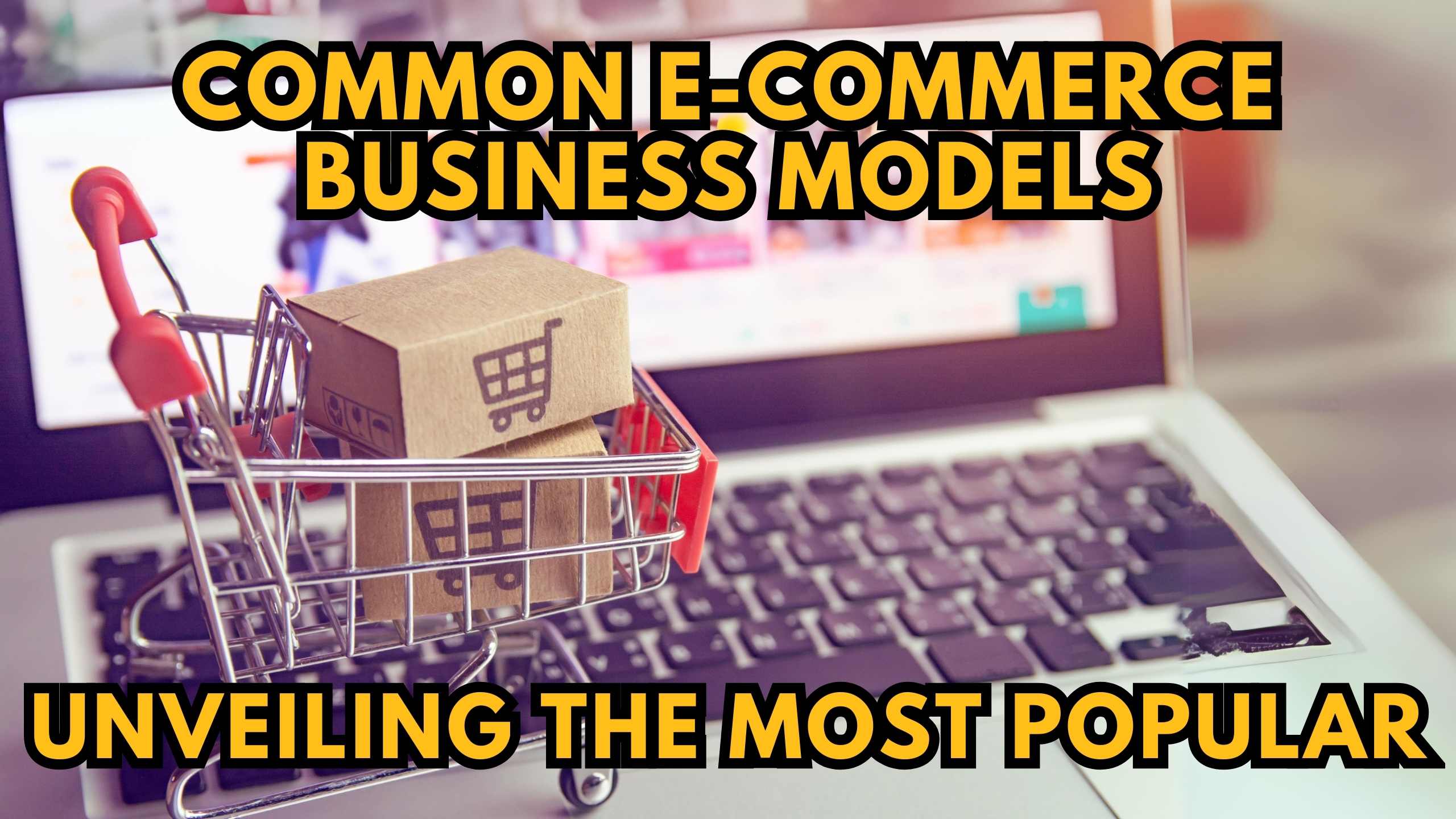Common E-commerce Business Models: Unveiling the Most Popular


Common E-commerce Business Models: Unveiling the Most Popular
Entering the world of e-commerce involves understanding the various business models that drive online retail. In this comprehensive exploration, we unveil the most popular e-commerce business models, shedding light on their intricacies and relevance in the digital landscape. Additionally, we’ll introduce relevant SaaS products that can enhance and streamline operations within each business model.
1. B2C (Business-to-Consumer): The E-commerce Standard
Business-to-Consumer, or B2C, is the most common e-commerce model where businesses sell products directly to consumers. Popular for its simplicity and direct engagement, platforms like Shopify play a crucial role in empowering entrepreneurs to set up and manage their B2C online stores effortlessly. Shopify provides a user-friendly interface, customizable templates, and integrated payment solutions, making it an ideal choice for startups and small businesses.
2. B2B (Business-to-Business): Catering to Wholesale Needs
Business-to-Business, or B2B, e-commerce focuses on transactions between businesses. Alibaba is a standout SaaS platform that facilitates B2B commerce on a global scale. It connects manufacturers and suppliers with businesses seeking wholesale products, fostering international trade relationships. Alibaba’s extensive product listings and secure communication channels make it an indispensable tool for businesses engaged in B2B e-commerce.
3. C2C (Consumer-to-Consumer): Empowering Individuals
Consumer-to-Consumer, or C2C, allows individuals to sell products or services directly to other consumers. Platforms like eBay exemplify the C2C model, providing a marketplace for individuals to buy and sell both new and used items. With eBay, users benefit from a vast audience, secure payment systems, and a reputation-based feedback system, creating a trustworthy environment for C2C transactions.
4. D2C (Direct-to-Consumer): Cutting Out the Middleman
Direct-to-Consumer, or D2C, is a model where brands sell their products directly to consumers, bypassing traditional retail channels. WooCommerce is a powerful SaaS plugin for WordPress that enables businesses to set up D2C e-commerce websites seamlessly. It offers customizable storefronts, secure payment gateways, and integration with various marketing tools, providing businesses with the autonomy to establish and grow their direct sales channels.
5. Dropshipping: Low-Risk E-commerce Venture
Dropshipping is a unique model where retailers don’t stock products but instead purchase items from third parties as needed. Oberlo simplifies the dropshipping process by connecting online retailers with suppliers. It integrates seamlessly with platforms like Shopify, allowing entrepreneurs to browse and add products to their store without worrying about inventory management. Oberlo’s automated order fulfillment and product syncing features make it an invaluable asset for those venturing into dropshipping.
Relevant SaaS Products:
- Shopify: Establish and manage B2C online stores with ease using Shopify’s intuitive interface, customizable templates, and integrated payment solutions.
- Alibaba: Facilitate global B2B commerce by connecting with manufacturers and suppliers through Alibaba’s extensive product listings and secure communication channels.
- eBay: Engage in C2C transactions on a global scale with eBay’s marketplace, offering a vast audience, secure payment systems, and a reputation-based feedback system.
- WooCommerce: Set up D2C e-commerce websites effortlessly with WooCommerce, a powerful WordPress plugin providing customizable storefronts and secure payment gateways.
- Oberlo: Simplify the dropshipping process by connecting with suppliers through Oberlo, which seamlessly integrates with platforms like Shopify for automated order fulfillment and product syncing.
Conclusion
Understanding the common e-commerce business models is crucial for entrepreneurs navigating the digital marketplace. Whether you’re embracing B2C, B2B, C2C, D2C, or exploring the low-risk venture of dropshipping, each model comes with its unique advantages and considerations. Leveraging the right SaaS tools further enhances the efficiency and effectiveness of e-commerce operations.
Optimize Your E-commerce Experience with Subscribed.fyi!
Ready to optimize your e-commerce venture? Subscribed.fyi offers exclusive deals on essential SaaS tools. Sign up for free to unlock secret deals and elevate your e-commerce operations. Empower your business with the right tools and thrive in the competitive world of online retail.
Relevant Links:








